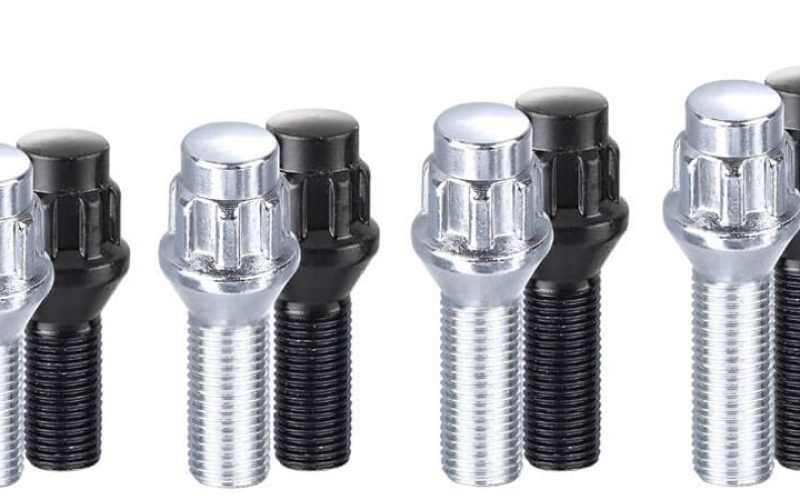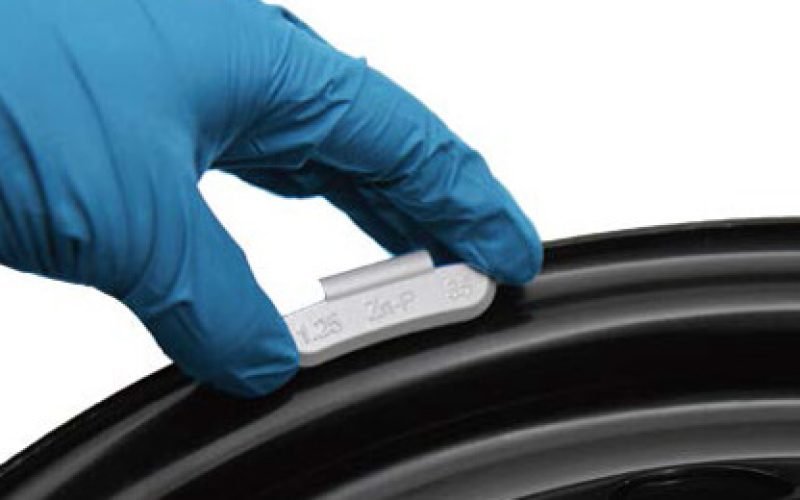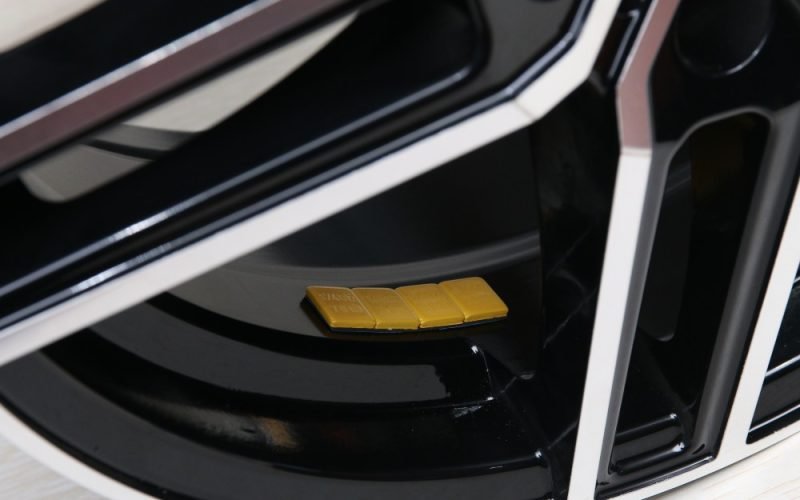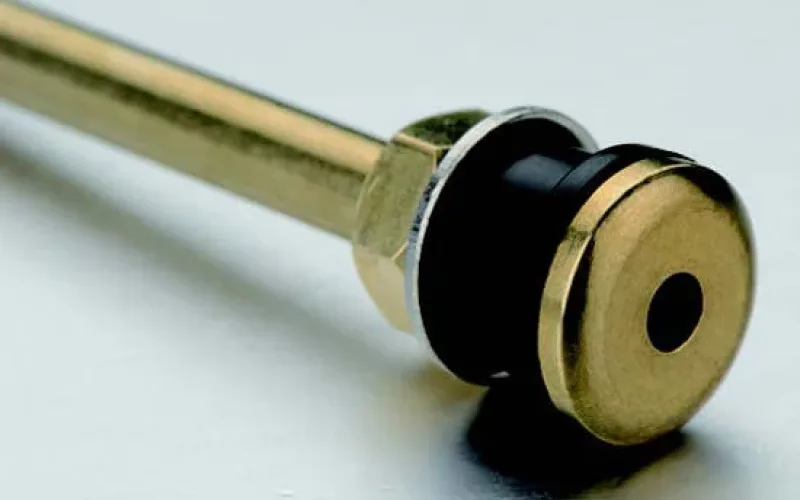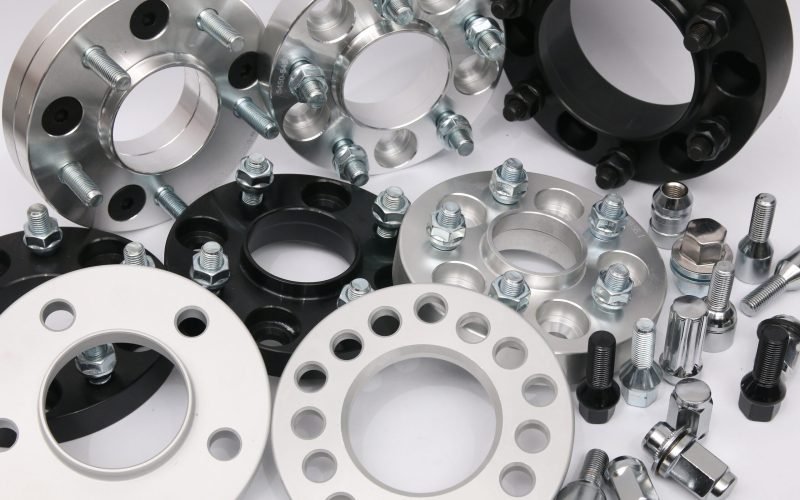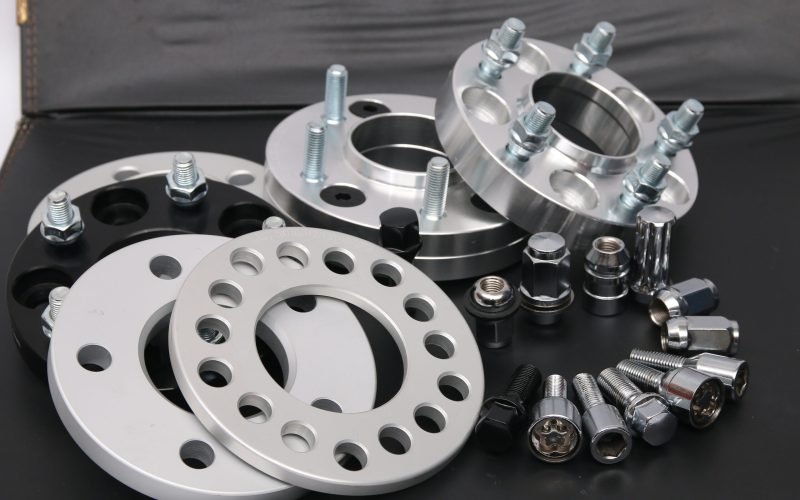

admin1
June 16, 2025
Exploring the Advantages of Steel Adhesive Wheel Weights for New Vehicles
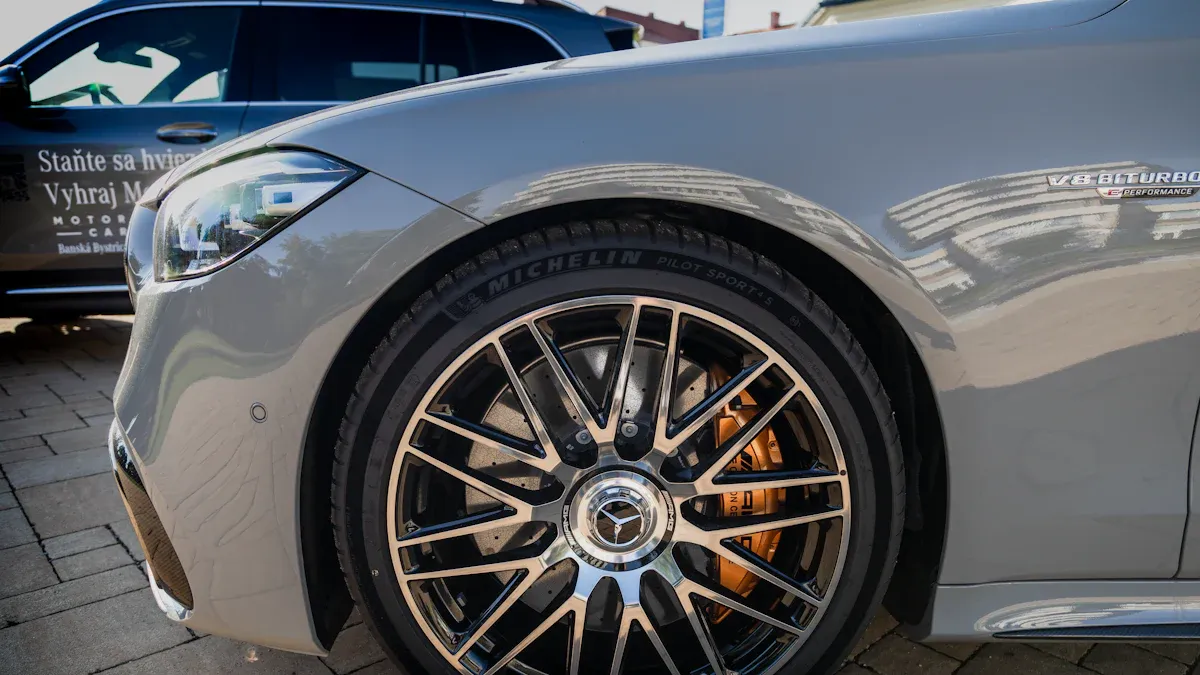
Steel adhesive wheel weights help new vehicles achieve superior balance and reliability. They use advanced adhesive technology to fit a wide range of wheels, supporting strong compatibility with modern vehicles. These wheel weights improve performance by providing precise balance performance, which leads to better ride quality and comfort.
- Industry data shows that adhesive wheel weights contribute to:
- Higher fuel efficiency due to lighter materials and precise balancing.
- Improved handling and stability, especially important for electric and hybrid vehicles.
- Smoother rides with reduced vibrations, meeting strict emission and efficiency standards.
Automakers choose adhesive wheel weights because they offer long-term value and efficiency while blending seamlessly with modern designs.
Steel Adhesive Wheel Weights: What They Are and How They Work

How Steel Adhesive Wheel Weights Function
Steel adhesive wheel weights help balance vehicle wheels by attaching directly to the inner surface of the rim. Manufacturers use steel or zinc, often coated with polymers or epoxy, to make these weights strong and resistant to corrosion. The adhesive backing allows for precise placement, which is important for modern vehicles that require exact balancing. Technicians clean and dry the wheel surface before applying the weight to ensure a secure bond. After placement, they check the balance using electronic equipment. This process helps reduce vibrations, improve ride quality, and extend tire life. The use of lead-free materials also supports environmental safety.
Note: Proper installation and surface preparation are essential for the adhesive to work effectively and keep the wheel weights in place during all driving conditions.
Compatibility with Modern Wheel Types
Adhesive wheel weights show superior compatibility with today’s alloy and aftermarket wheels. Their flat, sticky design allows them to bond well to smooth surfaces, making them ideal for low-profile tires and rims without flanges. Compatibility tests, such as flat-road and obstacle-climbing trials, show that adhesive wheel weights perform well on smooth roads and maintain their grip under stress. Peel and fatigue tests confirm their durability, even after repeated use. These features make them a reliable choice for new vehicles with advanced wheel designs.
- Adhesive wheel weights fit a wide range of modern wheels.
- They work especially well with alloy wheels, which are common on new cars.
- Their design avoids damage to wheel finishes, keeping the vehicle looking sharp.
The Importance of Steel and Adhesive Technology
Combining steel with advanced adhesive technology brings many benefits. Steel provides strength and density, allowing for precise balancing. The adhesive backing makes installation easy and prevents damage to the wheel. Research shows that this combination reduces vibrations by over 10%, improves ride comfort, and increases vehicle stability. It also helps save fuel by lowering rolling resistance. The use of steel and other eco-friendly materials meets strict environmental standards and supports the shift toward sustainable automotive solutions. As electric vehicles become more popular, steel adhesive wheel weights offer the durability and efficiency needed for these advanced cars.
Key Features of Adhesive Wheel Weights for New Vehicles
Secure Adhesion and Universal Fit
Adhesive wheel weights use strong bonding technology to attach securely to the inside of the wheel. This design allows technicians to place the weights exactly where needed, which helps achieve improved precision in wheel balancing. The universal fit of adhesive weights means they work with many types of wheels, including alloy and aftermarket designs. Many new vehicles use wheels with smooth surfaces, so these weights provide a solution that does not damage the finish. The adhesive backing holds up under different temperatures and road conditions, keeping the weights in place even during sharp turns or sudden stops. This secure fit supports better ride quality and helps maintain balance over time.
Corrosion Resistance and Durability
Manufacturers coat steel adhesive wheel weights with zinc plating or plastic finishes. These coatings protect the weights from rust and corrosion, even when exposed to moisture, dirt, or road salt. High-quality steel and OE-approved coatings help the weights last longer and perform well in all weather. Industry experts report that these coatings offer nearly three times the corrosion resistance of traditional polyester topcoats. This means the wheel weights can handle tough road conditions without chipping or failing. Companies like Bekaert use ISO 9001:2015 certified processes to ensure each product meets strict standards for durability. As a result, drivers can trust these weights to keep their vehicles balanced for many miles.
Eco-Friendly, Lead-Free Construction
Many countries now ban lead wheel weights because lead is toxic and harms the environment. Studies show that lead can cause neurological and developmental problems in humans and animals. Old lead weights often end up in landfills or waterways, where they release harmful substances like arsenic and cadmium. Steel adhesive wheel weights use non-lead materials, such as steel or zinc, which are safer and easier to recycle. These alternatives reduce pollution and help protect aquatic ecosystems. Industry experts recommend using non-lead wheel weights to meet new regulations and support a cleaner environment. Companies like 3M report that switching to lead-free weights helps reduce waste and keeps vehicles looking good by preventing corrosion.
Tip: Choosing eco-friendly wheel weights supports both vehicle performance and environmental health.
Aesthetic Integration with Alloy and Aftermarket Wheels
Steel adhesive wheel weights offer a sleek solution for drivers who care about the look of their wheels. Many new vehicles come with alloy or aftermarket wheels that feature polished, painted, or machined finishes. These wheels often have unique designs and smooth surfaces. Traditional clip-on weights can stand out and sometimes scratch or damage the wheel. Steel adhesive wheel weights solve this problem by sticking directly to the inside of the rim, staying hidden from view.
Automotive experts report that adhesive wheel weights help keep the original appearance of the wheel. They do not interrupt the design or color of the rim. This feature matters to car owners who want their vehicles to look sharp and modern. In a survey by SEMA (Specialty Equipment Market Association), over 60% of car enthusiasts said that wheel appearance is a top priority when choosing upgrades.
Tip: Using steel adhesive wheel weights helps protect the value of custom wheels by avoiding visible marks or scratches.
Steel adhesive wheel weights come in slim, low-profile shapes. Manufacturers often paint or coat them in neutral colors like silver or black. This helps them blend in with most wheel finishes. Some brands even offer color-matched options for popular wheel styles. The weights fit snugly against the rim, so they do not catch dirt or debris.
- Key benefits for alloy and aftermarket wheels:
- Maintain a clean, factory-fresh look
- Prevent damage to wheel coatings
- Stay hidden for a seamless appearance
Car dealerships and tire shops choose steel adhesive wheel weights for new vehicles because they combine function with style. This choice supports both performance and aesthetics, making them ideal for today’s automotive market.
Enhanced Safety and Performance Benefits
Improved Ride Quality and Comfort
Steel adhesive wheel weights play a key role in creating a smooth driving experience for new vehicles. These weights allow technicians to place them with precision, which helps balance the wheels more accurately. When wheels stay balanced, the car moves without shaking or bouncing. This leads to a smoother ride, even on rough roads. Drivers notice less vibration in the steering wheel and seats. The car feels more stable at both low and high speeds.
- Precise placement of wheel weights allows for fine adjustments.
- Reduced vibration and resonance with the wheel structure improve ride quality.
- Secure attachment keeps the weights in place, even at highway speeds.
A smooth driving experience also means less noise inside the car. Passengers enjoy greater comfort during long trips. Consistent balance helps tires wear evenly, which extends their lifespan and saves money over time.
Enhanced Safety and Stability on the Road
Enhanced safety stands as a top priority for every vehicle owner. Steel adhesive wheel weights help maintain this safety during manoeuvres by keeping the wheels balanced at all times. When wheels are balanced, the car responds better to steering and braking. This improves control, especially during sudden turns or stops.
- Secure attachment ensures wheel weights remain fixed, preventing detachment.
- Multiple placement options allow better distribution of weight.
- Corrosion resistance maintains performance in rain, snow, or heat.
Consistent performance across different driving conditions helps prevent accidents. Drivers feel more confident when the car handles well. Balanced wheels also reduce stress on the suspension system, which keeps the vehicle stable and safe.
Note: The absence of sharp metal edges in adhesive wheel weights lowers the risk of injury during installation and handling.
Protection for Wheels, Suspension, and Tires
Wheel weights do more than balance the car. They protect important parts like the wheels, suspension, and tires. When wheels stay balanced, the tires wear evenly. This reduces the chance of flat spots or blowouts. The suspension system does not have to work as hard, which means fewer repairs and longer life for these parts.
- Extended tire life results from improved balance and stability.
- Reduced suspension stress keeps the ride smooth and safe.
- Consistent performance protects all parts, even in tough driving conditions.
Properly balanced wheels also help maintain vehicle performance. The car uses less energy to move, which can improve fuel efficiency. Drivers enjoy a smooth driving experience while saving money on repairs and fuel.
Better Fuel Efficiency and Reduced Vibrations
Steel adhesive wheel weights play a crucial role in helping new vehicles achieve better fuel efficiency and smoother rides. When technicians balance wheels with these weights, the tires roll more evenly on the road. This even rolling reduces the energy the engine needs to move the car forward. As a result, the engine uses less fuel, which saves money and helps the environment.
Many studies show that balanced wheels can improve fuel efficiency by 5% to 10%. Proper wheel balancing also lowers rolling resistance, which means the tires do not drag or bounce as much. This makes the car easier to drive and keeps the ride comfortable for everyone inside.
Balanced wheels help drivers feel less vibration in the steering wheel, seat, and floor. This smoother ride increases comfort and confidence, especially on long trips.
A table below highlights some important findings from recent research:
| Benefit/Metric | Improvement/Impact |
|---|---|
| Tire life extension | 25% to 50% longer |
| Tire life improvement with balancing | 60% to 80% |
| Reduction in tire heat | 8% to 10% |
| Estimated annual savings per truck | $7,100 |
| Fuel efficiency improvement | 5% to 10% savings |
| Reduced repair costs | $200 to $500 per year |
Balanced wheels also protect the suspension and steering parts. When the wheels do not shake or vibrate, these parts last longer and need fewer repairs. About 85% of drivers say they feel more comfortable and confident after balancing their wheels with adhesive weights. Vibration sensors confirm that proper wheel weights reduce shaking, making the ride smoother for everyone.
- Balanced wheels extend tire life by up to 50%.
- Proper balancing reduces strain on the suspension and steering.
- Smoother rides mean less noise and more comfort.
Steel adhesive wheel weights support vehicle performance by keeping the car stable and efficient. They help drivers save fuel, reduce repair costs, and enjoy a quieter, more comfortable ride. Over time, these benefits add up, making steel adhesive wheel weights a smart choice for anyone who wants to improve their car’s efficiency and performance.
Comparing Wheel Weights: Steel Adhesive vs. Other Types
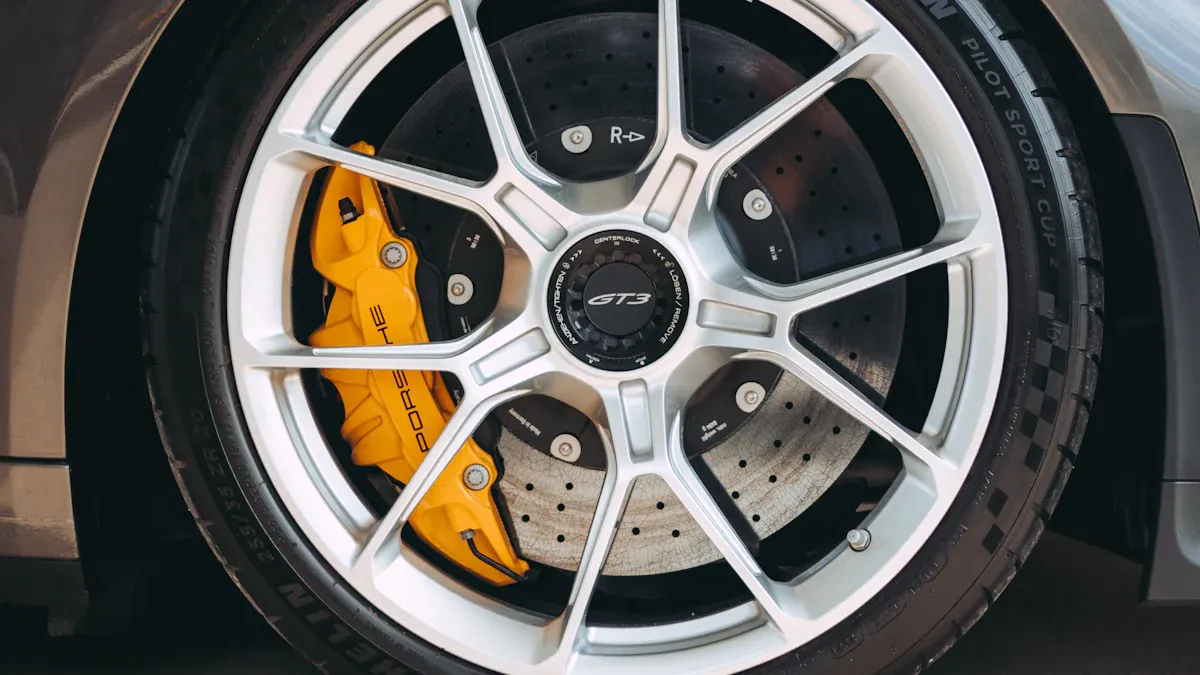
Steel Adhesive Wheel Weights vs. Clip-On Weights
Choosing between stick-on and clip-on wheel weights depends on the type of wheel and driving conditions. Clip-on weights attach by clamping onto the rim and need a hammer tap for a tight fit. This method works well for steel wheels and in harsh, off-road, or wet environments. Stick-on wheel weights, also called adhesive weights, use a strong adhesive to bond to the inside of the rim. They fit best on alloy wheels and protect the wheel’s finish. Stick-on wheel weights stay hidden, which keeps the wheel looking clean.
| Aspect | Clip-On Steel Wheel Weights | Adhesive (Stick-On) Wheel Weights |
|---|---|---|
| Compatibility | Best for steel wheels; secure fit | Best for alloy wheels; protects finish |
| Durability & Safety | Very durable; less risk of detachment in harsh conditions | Good in dry, urban settings; may lose grip in wet/muddy |
| Installation | Needs hammer; risk of scratching rim | Needs clean surface; gentle on wheels |
| Aesthetic Appeal | Visible on rim | Hidden; blends with wheel |
| Environmental Impact | Lead-free steel; recyclable | Eco-friendly; often lead-free |
When choosing between stick-on and clip-on, drivers should consider the wheel material and where they drive most often.
Steel Adhesive Wheel Weights vs. Lead Weights
Steel adhesive wheel weights have replaced lead weights in many countries. Lead is toxic and can harm the environment. Steel is safer and recyclable. Stick-on wheel weights made from steel do not pollute soil or water. They also meet strict environmental rules. Lead weights are now banned in many places, so steel adhesive wheel weights are the better choice for safety and the planet.
Steel Adhesive Wheel Weights vs. Zinc Weights
When choosing between stick-on and clip-on, some drivers look at zinc weights. Zinc offers good corrosion resistance and a smooth finish. However, steel adhesive wheel weights use advanced high-strength steel, which makes them lighter and stronger. They cost less than zinc weights and are easier to recycle. Stick-on wheel weights made from steel also allow for precise placement, which improves balance and reduces vibration. This makes them ideal for modern alloy wheels and custom designs.
- Stick-on wheel weights stay hidden and keep wheels looking new.
- They attach securely, even at high speeds.
- Steel adhesive wheel weights work with many wheel types, including coated and carbon fiber wheels.
Choosing between stick-on and clip-on comes down to the type of wheel, driving conditions, and the need for a clean look. Steel adhesive wheel weights offer strength, safety, and style for today’s vehicles.
Installation, Durability, and Suitability of Steel Adhesive Wheel Weights
Easy and Reliable Installation Process
Technicians find that installing steel adhesive wheel weights is a simple and reliable process. They follow a clear set of steps to ensure the weights stay in place and keep the wheels balanced. The process starts with mounting the wheel on a balancing machine to identify any imbalance. Next, they select the correct weight and clean the wheel surface thoroughly. This cleaning step is important for strong adhesion. After positioning the weight at the exact imbalance point, they press it firmly for 10-15 seconds. This action secures the adhesive. Technicians then re-test the wheel balance and inspect the placement.
- Mount the wheel on a balancer.
- Identify the imbalance location.
- Select the right adhesive wheel weight.
- Clean the wheel surface.
- Position and press the weight for 10-15 seconds.
- Re-test and inspect for security.
These steps show that the installation process is straightforward and dependable. Regular inspection and gentle cleaning help maintain reliability over time.
Long-Lasting Performance in All Conditions
Steel adhesive wheel weights show strong durability in many environments. Coated weights resist corrosion from moisture, road salt, and dirt. This protection makes them suitable for harsh weather and rough roads. Experts recommend regular checks and gentle cleaning to extend the lifespan of the weights. Proper installation, especially cleaning the wheel surface, ensures the adhesive remains strong. Drivers who follow these steps enjoy reliable wheel balance for many miles.
- Coated weights protect against rust and environmental damage.
- Regular maintenance supports long-term reliability.
- Proper installation increases durability.
Suitability for Different Vehicle Types and Applications
Steel adhesive wheel weights work well with many types of vehicles. They fit cars, SUVs, trucks, and even electric vehicles. Their universal design allows them to match different wheel shapes and sizes. Many new vehicles use alloy wheels, and these weights attach securely without damaging the finish. Tire shops and dealerships choose adhesive wheel weights for both standard and custom wheels. This flexibility makes them a top choice for modern vehicles and a wide range of driving needs.
Tip: Regularly check wheel weights for damage or looseness to keep vehicles safe and balanced.
Steel adhesive wheel weights provide unmatched balance and safety for new vehicles. Their advanced features and eco-friendly design make them a smart choice for both drivers and automotive professionals.
- Many users prefer these wheel weights for their long-lasting performance and clean look.
- The global market for adhesive wheel weights is growing quickly, now valued near $1 billion each year.
- New adhesive technology improves durability and makes installation easier.
- More vehicles use steel wheel weights because they resist corrosion and help protect the environment.
Choosing trusted manufacturers like Fortune ensures that wheel weights meet the highest industry standards.
FAQ
What makes steel adhesive wheel weights better for new vehicles?
Steel adhesive wheel weights offer precise balance, strong adhesion, and corrosion resistance. They fit modern alloy wheels and do not damage the finish. Industry tests show these weights help improve ride quality and extend tire life.
Are steel adhesive wheel weights safe for all weather conditions?
Yes. Manufacturers coat steel adhesive wheel weights with protective finishes. These coatings resist rust, moisture, and road salt. Tests confirm that the weights stay secure and effective in rain, snow, and extreme temperatures.
How do steel adhesive wheel weights support environmental safety?
Steel adhesive wheel weights use lead-free materials. This design prevents toxic substances from entering the environment. Studies show that switching to steel reduces pollution and supports recycling efforts in the automotive industry.
Can technicians install steel adhesive wheel weights on any type of wheel?
Technicians can install steel adhesive wheel weights on most alloy, steel, and aftermarket wheels. The universal fit and strong adhesive allow for easy placement. This flexibility makes them suitable for many vehicle types, including electric and hybrid models.
